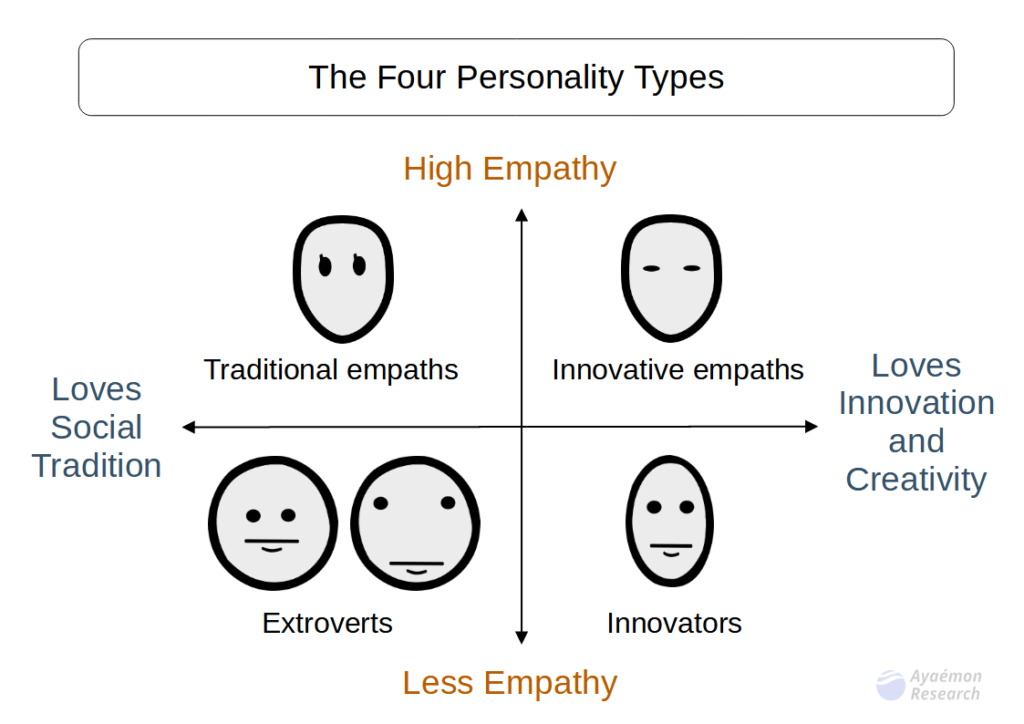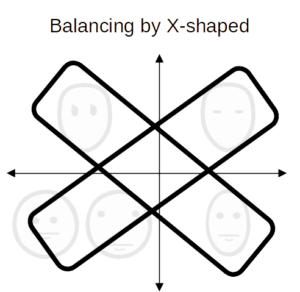Now I am fascinated with developing a new mental framework, the Cross-Judging method. It allows us to explain our mental system more easily. Today, I will explain a way to reduce fear based on that method. It might help us change our futures with fun.
How to reduce fear
Sometimes, we want to reduce our fear of change. Although we wish to improve our lives, fears often prevent that. Many risks in the future could ruin our lives. We cannot predict or prepare for all of them. That scares us.
A typical example is uncontrollable worrying on the eve of a new trip. We might be anxious about many possibilities: “What should I do if I drop my wallet or keys?” “What do I do if I miss the plane?” or “What should I do if I get involved in a gang?” Although we don’t care about them after we set off, we sometimes have such uncontrollable fears.
Changing our lives is the same as that. We might worry, “What should I do if I lose all my money after I change my environment?” Uncontrollable fear keeps us in a current situation.

We don’t know how to deal with them. We might sometimes wonder why we have such fear.
Today, I will explain the mental logic of why we have such strong fear. We can reduce our fears by resting our empathic sense and stimulating our logical sense. That might help us reduce our fear and change our futures more easily.
The four types of personalities
To explain it, I will introduce the four types of personalities that I frequently use, as follows:

There are four types of personalities, as follows:
- Extroverts: (Not in use this time.)
- Traditional empaths: The personality with empathy and imagination. They don’t care about logical backing because empathy is something beyond logic. That creates intense feelings of happiness, but also intense fear.
- Innovative empaths: The personality with empathy, imagination, and logical thinking. They can limit their empathy through logical thinking. That allows them to choose whom they help.
- Innovators: The personality with logic and creativity. They try to gain material abundance with their logic. They feel risks instead of fear. That makes them try new things without feeling fear.
We also have those personalities inside us.
The Cross-Judging method
The Cross-Judging method is a mental method to stabilize those values inside us. In that method, we balance the following two axes, which are X-shaped:

- The primary axis: The axis that connects our inherent personality with an inferiority complex. The balance of this axis determines our exhaustion or comfort in life.
- The secondary axis: The other axis that connects the rest of the personalities. The balance of this axis determines our boredom or enthusiasm for our activities.
(If you want more details, please see the following pages: summary of the cross-judging method, tag: cross-judging method)
The mental logic that creates uncontrollable fear
If you like this blog, you are probably one of the following:
- The traditional-empaths-biased innovative empath type: On the primary axis, they have an inferiority complex toward extroverts. On the secondary axis, they are biased toward traditional empaths and disregard innovators.
- The innovative-empaths-biased traditional empath type: On the primary axis, they have an inferiority complex toward innovators. On the secondary axis, they are biased toward innovative empaths and disregard extroverts.

This is because this blog’s readers tend to be highly empathic people. In other words, we are too sensitive to empathy. That causes many mental problems.
The case of innovative empaths
This time, I will explain the case of innovative empaths. I will mention the case of traditional empaths at some point.
The former, the traditional-empaths-biased innovative empath type, would tend to have a fear of change, in my opinion. On the other hand, the latter, the innovative-empaths-biased traditional empath type, tends to have less fear.

This is because the former innovative empaths desire to improve their lives continuously.
The effects of a strong bias toward traditional empaths
If we are innovative empaths with a strong bias toward traditional empaths on the second axis, that creates uncontrollable fear.
It is because empathy creates not only feelings of happiness but also fears. Empathy gives us strong mental pleasure if we make someone happy. It is like a psychological drug that less empathic people never taste. That intense mental reward makes us help others, even if we sacrifice our resources.
However, that also creates many kinds of fear. Empathy could cause many imaginative emotions, for better or worse.
A typical example is the uncontrollable worry on the eve of a new trip, as mentioned at the top of this article.

Another example is the fear of wasting our lives. If we are too sensitive to empathy, we tend to feel, “Is there something I can do for someone else?” “I don’t want to waste my life.” or “I should make others happy more to make my life happy.” In other words, we tend to forget self-fulfillment.
That makes us feel like we must keep doing something valuable for others and hesitate to take a rest or vacation for ourselves. Although doing for ourselves is one form of happiness, we tend to disregard it.
If we are too sensitive to empathy, we cannot control it. That creates uncontrollable fear.
A way to reduce fear
In that case, the Cross-Judging method tells us we can reduce our fears by resting the sense of traditional empaths and stimulating the innovator’s sense. That gives us mental balance.
It is like a way of life that clears a checklist, one by one. Try listing things that benefit us, such as cleaning our house, finishing chores, or trying to get what we want, and start working on them strategically. That gives us mental balance.

For example, we don’t have to use empathy while cleaning the house. We use only logical or strategic thinking. That gives us mental peace if we can progress toward our goals at our own pace. We will find it to be another kind of joy in life for innovative empaths.
That is how the innovator’s life feels. We neither feel emotions nor use imaginations related to empathy. That allows us to rest our sense of empathy.
After resting for a while, we will find the pain of empathy gone. We don’t have uncontrollable fear any longer. In other words, we succeed in balancing our minds.
Conclusion
Above is the mental logic of why we have too strong fear.
For innovative empaths, the personality of traditional empaths creates strong mental pleasures but also fears.
We can balance our fears by resting the personality of traditional empaths and stimulating the innovator’s personality.
This might help us reduce our fear and make our lives easier.
Thank you for reading this article. I hope to see you in the next one.


